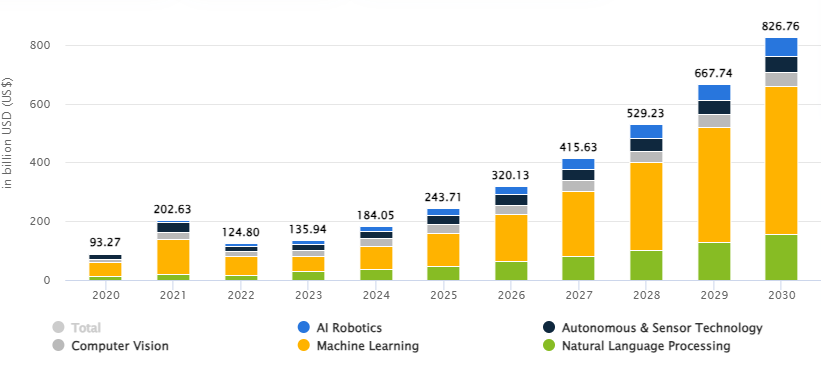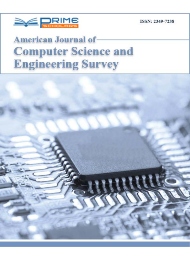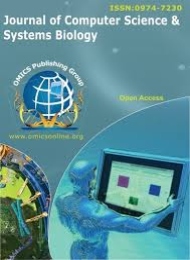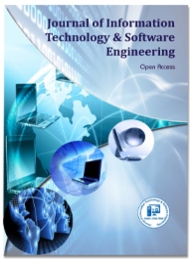Theme: Unleashing the power of data through AI and Machine Learning
ARTIFICIAL INTELLIGENCE-2024
- About Conference
- Sessions and Tracks
- Why To Attend?
- Benifits of Participation
- Market Analysis
- Visa Trip Advisor
You're invited to join us at the 5th International Congress on AI and Machine Learning, set to take place in Dubai, UAE on December 09-10, 2024. With our theme, "Unleashing the Power of Data through AI and Machine Learning," the congress promises a deep dive into the transformative potential of these technologies. Join us for engaging discussions, insightful presentations, and networking opportunities with experts and enthusiasts from around the globe.
Artificial Intelligence 2024 is an international platform to explore and study the latest technology, innovations, applications, and intensive research, facilitating comprehensive knowledge sharing. The conference will feature significant international experts, professors, specialists, research scholars, student delegates, and exhibitors from all over the world. Conference highlights include oral presentations, poster presentations, keynote talks, workshops, and much more.
Attendees will also have the opportunity to participate in exclusive panel discussions with industry leaders and attend cutting-edge demonstrations of AI applications. This event is not only a chance to learn and grow but also to contribute to shaping the future of AI and machine learning.
Track 01: Artificial Intelligence
Artificial Intelligence (AI) involves creating computer systems that can execute tasks traditionally associated with human intelligence. Through algorithms and models, AI systems can learn from data, reason, and make decisions autonomously. AI finds application in diverse domains such as natural language processing, computer vision, robotics, and autonomous vehicles, driving innovation and transforming industries.
Track 02: Machine Learning
Machine learning is a subset of artificial intelligence where algorithms enable computers to learn from data and make predictions or decisions without explicit programming. It involves analyzing large datasets to identify patterns and improve performance over time, finding applications in various fields such as recommendation systems, image recognition, and predictive analytics, driving innovation and efficiency.
Track 03: Big Data
Big data refers to the massive volume of structured and unstructured data generated from various sources, including social media, sensors, and digital transactions. It encompasses large datasets that traditional data processing methods struggle to manage efficiently. By leveraging advanced analytics, big data enables organizations to extract valuable insights, optimize operations, and make data-driven decisions, driving innovation and competitiveness.
Track 04: Robots
Robots are programmable machines designed to execute tasks autonomously or semi-autonomously, typically in industrial or service settings. They come in various forms, from industrial arms on factory floors to humanoid robots in research and entertainment. Robots utilize sensors, actuators, and artificial intelligence to perceive their environment, make decisions, and carry out tasks, contributing to efficiency, precision, and automation across industries.
Track 05: AI in Cyber Security
AI in cybersecurity utilizes machine learning algorithms to fortify digital defences by swiftly detecting and mitigating threats. It enhances threat detection accuracy and speed, enabling proactive defence measures against evolving cyber attacks. Through AI, cybersecurity systems adapt dynamically, strengthening resilience against potential breaches and safeguarding sensitive data.
Track 06: Future Scope of AI
The future scope of AI holds immense potential across various domains, from healthcare and finance to transportation and education. Advancements in AI algorithms, coupled with increased computing power, will lead to more sophisticated applications such as personalized medicine, autonomous vehicles, and AI-driven education platforms. As AI continues to evolve, it promises to revolutionize industries, enhance efficiency, and address complex societal challenges, shaping a technologically empowered future.
Track 07: Natural Language Process
Natural Language Processing (NLP) is dedicated to empowering computers to comprehend, interpret, and produce human language. It encompasses a range of tasks, including categorizing text, discerning sentiment, and translating languages. By bridging the gap between human communication and machine understanding, NLP powers virtual assistants, chatbots, and language-based applications, revolutionizing how we interact with technology.
Track 08: Benefits of AI and ML
AI and ML offer transformative benefits by automating tasks, enhancing decision-making, and driving innovation across industries. They optimize processes, improve efficiency, and reduce costs through predictive analytics and data-driven insights. Additionally, AI and ML empower personalized experiences, fueling advancements in healthcare, finance, and beyond, ultimately reshaping the future of work and society.
Track 09: Human Robot Interaction
Human-robot interaction (HRI) explores the dynamic interplay between humans and robots, encompassing communication, collaboration, and social engagement. It seeks to develop intuitive interfaces and behaviors that facilitate seamless interaction, fostering trust and cooperation between humans and robotic systems. HRI spans diverse applications, from healthcare and manufacturing to entertainment and household assistance, shaping the future of human-robot collaboration and coexistence.
Track 10: Artificial Neural Network
Artificial Neural Networks (ANNs) are computational models inspired by the structure and functioning of the human brain's neural networks. ANNs consist of interconnected nodes, or artificial neurons, organized into layers. Each neuron receives input signals, performs a computation, and generates an output signal that is passed to subsequent neurons.
Track 11: Internet of Things
The Internet of Things (IoT) refers to the network of interconnected devices, vehicles, appliances, and other objects embedded with sensors, software, and connectivity, enabling them to collect and exchange data. IoT enhances efficiency, automation, and convenience across diverse domains, from smart homes and cities to industrial processes and healthcare systems. It drives innovation by enabling real-time monitoring, control, and optimization of physical environments through digital connectivity.
Track 12: Data Science
Data science is a multidisciplinary domain that applies scientific methodologies, algorithms, and systems to derive insights and understanding from both structured and unstructured data. Data scientists employ techniques such as data mining, machine learning, and predictive analytics to uncover patterns, trends, and relationships in data, enabling data-driven decision-making and solving real-world problems across various domains.
Track 13: Computer Vision
Computer vision is an interdisciplinary field that enables computers to interpret and analyze visual data from the real world. It involves algorithms and techniques for acquiring, processing, and understanding images and videos. Applications of computer vision include object detection, facial recognition, image classification, and augmented reality. Its advancements have led to innovations in various industries, from healthcare and automotive to retail and entertainment.
Track 14: Deep Learning
Deep learning has emerged as a revolutionary approach to machine learning, drawing inspiration from the structure and function of the human brain. By leveraging artificial neural networks with multiple layers, deep learning algorithms have unlocked unprecedented capabilities in various domains.
Track 15: Neural Networks
Neural networks are computational models inspired by the human brain's structure and function, consisting of interconnected nodes arranged in layers. They excel in learning patterns and relationships from data, enabling tasks like classification, regression, and pattern recognition. Neural networks power advancements in artificial intelligence, driving innovations in image and speech recognition, natural language processing, and many other fields.
Track 16: Reinforcement Learning
Reinforcement learning (RL) is a branch of machine learning concerned with training agents to make sequential decisions by interacting with an environment. RL algorithms aim to maximize cumulative rewards over time by discovering optimal strategies, known as policies, for achieving specific goals.
Track 17: Cloud Computing
Cloud computing involves the delivery of computing services including servers, storage, databases, networking, software, and more over the internet. It enables organizations to access and utilize computing resources on-demand, without the need for extensive infrastructure investment. Cloud computing offers scalability, flexibility, and cost-effectiveness, revolutionizing the way businesses and individuals manage and deploy IT resources.
Track 18: Induction Session
An induction session is a briefing or orientation held for new employees to introduce them to the organization's culture, policies, and procedures. It typically covers topics such as company history, workplace rules, benefits, and safety protocols, aiming to familiarize newcomers with their roles and responsibilities. Induction sessions serve to integrate new hires into the organization and set expectations for their journey ahead.
Track 19: Generative AI
Generative AI generates novel data by leveraging learned patterns. It's used for generating diverse content like images, text, and music. While enabling creative applications, it also raises concerns regarding authenticity and ethical use. Responsible development and oversight are essential for its positive integration into various domains.
Track 20: Predictive Analytics
Predictive analytics is the practice of extracting insights from data to predict future trends, behaviors, and outcomes. It involves analyzing historical data, identifying patterns and relationships, and using this information to make informed predictions about future events.
Stay Updated: Keep abreast of the latest trends, advancements, and innovations in AI and machine learning. These fields evolve rapidly, and conferences provide a platform to learn about cutting-edge technologies and techniques.
Networking Opportunities: Connect with experts, researchers, practitioners, and enthusiasts in the field. Networking can lead to collaborations, partnerships, and knowledge exchange, enriching your understanding and opening up new opportunities.
Professional Development: Enhance your skills and knowledge through workshops, tutorials, and keynote sessions conducted by industry leaders and academic experts. Gain insights into best practices, case studies, and real-world applications.
Explore Career Opportunities: Discover job openings, internships, and research positions in AI and machine learning. Many conferences host career fairs and recruiting events where you can interact with potential employers and showcase your expertise.
Visibility and Recognition: Present your research, projects, or ideas at poster sessions, paper presentations, or workshops. Conferences provide a platform to showcase your work to a diverse audience, receive feedback, and gain recognition within the AI and machine learning community.
TARGET AUDIENCE:
- Developers and Data Scientists
- Business Leaders and Executives
- Researchers and Academics
- Students
- Exhibitors and Sponsors
- Industry Practitioners
- Policy Makers and Regulators
- General Public
- Start up and Entrepreneurs
- Investors and Venture Capitalists
- Non-profit Organizations and NGOs
Benefits of Participation- Speaker
- Worldwide acknowledgment of Researcher’s profile
- Make Lasting connections at Networking and Social Events
- An opportunity to give One-page advertisement in abstract book and flyers distribution which eventually gets 1 Million views and add great value to your research profile
- Learn beyond your field of interest, a change to know more about the new topics and research apart from your core subject from ARTIFICIAL INTELLIGENCE.
- We provide unique convergence of Networking, Learning and Fun into a single package
Benefits of Participation- Delegate
- Professional Development –Uplift the knowledge and skills
- Conference attendance inspires, rejuvenates, and energizes delegates
- Your participation at our conference will be helpful for a new approach and ideology that can be utilized for the extending the outcome of companies or industries.
- Opportunities to meet through online webinar for ARTIFICIAL INTELLIGENCE researchers and experts of same field and share new ideas
Benefit of Participation- Sponsor
- Exposure to the international atmosphere will increase the odds of getting new business
- Opportunity to showcase the new technology, new products of your company, or the service your industry to a broad international participant.
- World’s No. 1 platform to show case ARTIFICIAL INTELLIGENCE products.
- Increase business by lead generation through our conference participants.
- ARTIFICIAL INTELLIGENCE conferences create opportunities for greater focus and reflection that could help you take your business to the next level.
- Benchmarking key strategies for business and moving it forward
- Real Benefits in New business-Many Organizations make deals and sign contracts at our ARTIFICIAL INTELLIGENCE.
Benefit of Association for Collaborators
- No one in the world have this huge visitor towards ARTIFICIAL INTELLIGENCE, this is the best platform to showcase the society
- Create long-lasting relationships with the peers
- Promotional content and Logo of your Association at our conference banner, website and other proceedings, branding and marketing material will increase your subscribers/Members number by 40%.
- Our event visibility to your Organization page can give a great impact for your association in the Global Market forum.
- Your representatives can network with key conference delegates to update their knowledge and understanding of your organization and services.
- Details will be incorporated with ARTIFICIAL INTELLIGENCE promotional materials like flyers, brochure, pamphlets, program which will be distributed to Hospitals, Universities, Society and Researchers
In 2022, the global market size for AI and Machine Learning (ML) reached USD 19.20 billion. By 2030, it's projected to soar from USD 26.03 billion in 2023 to a whopping USD 225.91 billion, with a remarkable Compound Annual Growth Rate (CAGR) of 36.2% throughout the forecast period.
Planning a trip to Paris, France? Attend our Meeting!
Issue with VISA?
To support participants in their Visa Application Process, we provide VISA support documents as follows:
1. Official Letter of Invitation
2. Official Letter of Abstract Acceptance
3. Receipt of Payment
Points to note:
- Visa Letter (official letter of invitation) will be issued only after successful registration and payment for the conference.
- Visa Letters can be issued only for the individual accepted to attend the conference.
- Please contact the Program Manager – James Atlas,via jamesatlas18@gmail.com to arrange for a Visa Letter.
Kindly provide us with the following information for Visa Letters:
- Your name as it appears on your passport
- Passport Scan Copy (passport number and date of birth)
- Abstract Acceptance letter
Payment Methods:
1. Payment Gateway - RAZORPAY
2. Bank-to-Bank transfer
Having trouble with registration?
Please contact Program Manager – James Atlas via jamesatlas18@gmail.com.The ARTIFICIAL INTELLIGENCE 2024, team will provide you with an INVOICE for the requested price, enabling you to make the Bank-to-Bank transfer.
Conference Highlights
- Artificial Intelligence
- Machine Learning
- Big Data
- Robots
- AI in Cyber Security
- Future Scope of AI
- Natural Language Process
- Benefits of AI and ML
- Human Robot Interaction
- Artificial Neural Network
- Internet of Things
- Data Science
- Computer Vision
- Deep Learning
- Neural Networks
- Reinforcement Learning
- Cloud Computing
- Induction Session
- Generative AI
- Predictive Analytics
To share your views and research, please click here to register for the Conference.
To Collaborate Scientific Professionals around the World
| Conference Date | December 09-10, 2024 | ||
| Sponsors & Exhibitors |
|
||
| Speaker Opportunity Closed | |||
| Poster Opportunity Closed | Click Here to View | ||
Useful Links
Special Issues
All accepted abstracts will be published in respective Our International Journals.
- American Journal of Computer Science and Engineering Survey
- Journal of Computer Science & Systems Biology
- Journal of Information Technology & Software Engineering
Abstracts will be provided with Digital Object Identifier by



























